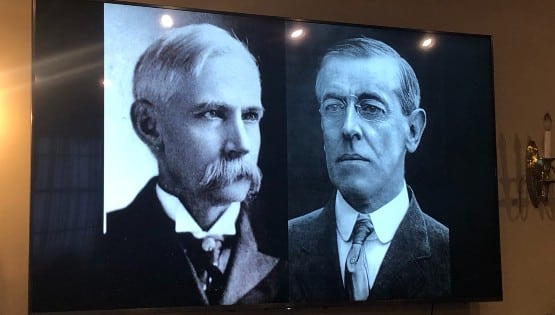You can not separate the two. In a few days the Christian world will celebrate an event that took place 2,014 years ago. (Luke places the birth of Christ in 4 B.C.) That is more than two millennium, a long time to keep any celebration going.
How come? I believe that it is mainly a matter of faith. And that your faith is more important than someone else’s proof.
When Christians celebrate their most important holiday they are saying that something very special happened. That it was the start of something big. That it had to do with their belief in a Supreme Being. And they believe that how they view God should also determine how they view their own lives.
But let’s go back to this season’s centerpiece, the Christmas Story. Where is the proof that such a lovely tale took place? While I believe that God doesn’t mind a little honest doubting, it would be nice to know the facts. Would the birth of Christ hold up in a courtroom today when there are no witnesses? I doubt it.
And there are other questions for the jury. Does God exist? Is he the singular sensation? And if there is a God who rules the world with truth and grace, maybe we should get another ruler to do a better job? In other words, “What’s it all about, Alfie?”
The only answer I can come up with: I believe because I do not know. It’s a matter of faith.
Scientists have tried to take a stab at such questions, but with little luck. “How did the universe begin?” they want to know. Some conclude that there is no answer — that the question lies beyond the limits of human reasoning. Others believe there is an answer, but the answer depends not on reason, but on faith.
Isaac Newton proposed his laws of gravity, only to conclude that such a perfect universal design meant a perfect designer. Immanuel Kant took Newton’s thinking a step beyond. He said that we can not comprehend the universe as a whole. And therefore will never construct a valid argument for the designer, for God.
Most physicists go along with Kant. But not Stephen Hawking, who recently broke ranks suggesting that the laws of physics imply that there are limiting conditions in which a universe, or multiverses, come into being. Dr. Hawking’s conclusion: There is no single creator. Thus there is no need for a God, no need for a faith.
So where does that leave us? I’ve dug the hole. You fill it. But to help out I will leave you with three shovels in the form of three stories. The first two are true. They happened here. The third is everywhere.
About fifteen years ago at an after hours local church gathering, two of us were discussing the question of whether Jesus lived and whether he was the son of God. It became increasingly apparent that Hugh was getting a little heartburn from my reliance on faith. He told me in a stern voice, “Dave, that’s your whole problem. (He did not know of my other problems.) You rely on faith. You have no proof. I have just returned from a tour of the Holy Land. I have seen all the places mentioned in the Bible. I have proof!
My second story happened eight years ago when my future son-in-law was attempting to ask for my daughter’s hand in marriage. He nervously said how much he loved Carolyn. That was the easy part. Then he got to his main concern. “You know, I’m Jewish. Does that cause you a problem?” I asked him a few questions about God, about believing in something beyond and beside himself. He supplied the right answers. I said, “No problem.” They have two lovely daughters. Enough said.
Our final story is fiction. However it contains the same universal truth found in the first two encounters. A group of scientists (one being Stephen Hawking) were proudly discussing the progress made by modern science to the point that God is no longer relevant, if he exists at all. God, of course, overheard the discussion and was intrigued. So he disguised himself and came down to Earth in human form to take part in the discussion. “You say that you are so advanced that you can create life from mere dirt and that God is not part of the equation?,” he asked of the scientists. “Yes!” they boasted. God asked how. One of the scientists proceeded to pick up a handful of dirt to start his experiment. God stared at him and said, “No, no, no! Get your own dirt.”
So this Christmas be careful whose dirt you are throwing around. Have a merry one!
Column by David Reynolds










